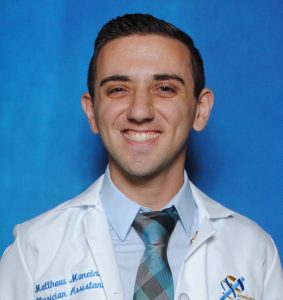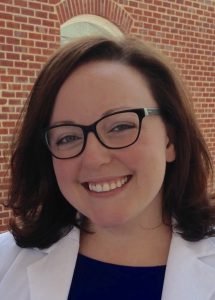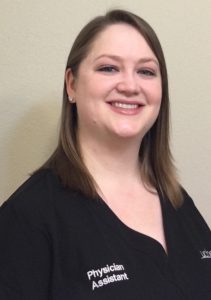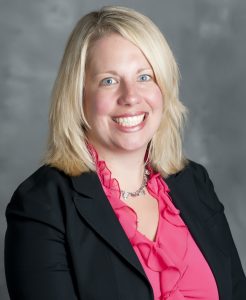Early-Career PAs Share Leadership Advice
Panelists at 2018 LAS Outline Their Leadership Tips
April 1, 2018
By Kate Maloney
As PAs in various states lobby their state legislatures for optimal team practice (OTP), the entire profession needs PA leaders in healthcare’s top ranks: medical boards, “C” suites, hospital administration, and on committees and commissions. Students and early-career PAs may think it is too soon to start thinking about leadership roles or administrative opportunities. But, at AAPA’s 2018 Leadership and Advocacy Summit, four PA panelists including Alisha DeTroye, PA-C, DFAAPA, Matt Mancini, PA-C, Mia McDonald, MSPA, PA-C, and Alysia Wiley, MMS, PA-C, spoke passionately about the value of leadership for young PAs and the need to make leadership an early-career priority.
Get involved
DeTroye, McDonald, and Wiley are all self-motivated leaders. After practicing for only six months, DeTroye, now Director of PA Services for Wake Forest Baptist Health System, volunteered with her local PA association and decided to run for a director-at-large position. She was elected in her first year of practice, and then served as president for two consecutive terms. McDonald works in Emergency Medicine with Wake Forest Baptist Community Physicians and also got involved as a student. She ran for class president as soon as she started PA school, and felt strongly about expanding her network beyond her school’s 42-member class. “I just wanted to be part of something bigger,” she says, and attended Conference, where she met other PA leaders and got involved with AAPA as a student delegate her second year. Wiley, a PA with the Trauma and Acute Care surgery team at Medical Center of the Rockies, also began her path to leadership at AAPA’s Conference. “I had no idea what the PA world looked like,” she says. “At Conference, I got to see the depth and breadth of the profession.” She has been in leadership positions ever since.

Mancini, who practices primary care in Washington, D.C., admits he needed a bit more of a nudge. His school’s program director sent him an email with the subject line: “You should run for a position,” leaving no ambiguity as to where she saw his future. He attended LAS at her urging, where he met the Student Academy President. Between their conversation and his program director’s urging, he realized not only could he succeed as a student leader, but that “I had the taste for it, and it’s something I’ve really come to love.”
Wiley points out that the PA-practice environment is eager for young leaders. With OTP, the need for rural healthcare providers, and the increased scope of practice, she says “It’s a great time of opportunity. We are coming to the table with very valid points and we have allies helping us.”
Consider leadership opportunities during your job search
Both Mancini and McDonald factored upward mobility into their job decisions. Mancini started working in a private practice in Connecticut but quickly realized there was little room for growth. So he set about looking for a change. He specifically sought out a position with leadership opportunities, and found one at George Washington University Hospital where “there is a clinical ladder and a professional growth track.”
McDonald chose her specialty because of the leadership opportunities it affords. “I was attracted to emergency medicine because there are opportunities to lead a team and serve on boards and committees,” she says. She paid particular attention to growth and development opportunities during her interviews, and suggests that any early-career PA interested in leadership should do so as well.
Focus on communicating effectively

DeTroye, Mancini, McDonald, and Wiley all agree that great leaders listen well, communicate effectively, and always work to improve their communication skills. As young leaders, they, too, are committed to being better communicators.
“Be able to articulate your position and understand the perspective of others you’re trying to influence,” DeTroye says. As a manager, she focuses on communicating behind-the-scenes management decisions: “the information doesn’t always trickle down to the practicing PA,” she confesses, “but my goal is to have PAs understand that we are advocating on their behalf.”
McDonald, who worked for Apple for five years before attending PA school and had to fill out self-assessments every six months during
her tenure there, always listed “active listening” as her number one personal opportunity. She knew it was a skill she needed to practice, and she prioritized it in her own career development. For her pre-clinical hours, she took a position as a scribe, where her active listening was tested each and every day. She did not shy away from a personal challenge and instead met it head on, exhibiting a successful leadership trait before she’d even begun PA school.

Wiley works in Colorado, where she was part of a constituent organization that worked for three years to get a stringent medical board rule changed. She notes that resolve can be an important and effective communication strategy. “Just because you get a no doesn’t mean what you’re asking for is wrong,” she says. “Figure out a different way to say it and make your message connect with the audience.” It took Wiley, the Colorado Academy of PAs, and AAPA three years, but they ultimately communicated their message effectively and got the rule change they were after.
A good leader can say no
All four early-career panelists underscore the importance of saying no sometimes. Wiley says it is important to be well-informed, and sometimes that means “recognizing that it’s okay to say you don’t know the answer.” But, she says, an equally important part of leadership is getting information and then following up.

DeTroye finds that people have long memories. “If you commit to something and can’t deliver, people will remember. Listen to your gut,” she advises. McDonald knows that learning to say no is “part of maturing as a leader. When you’re still developing, or you’re in a new position, make sure you ask questions to decide whether you are the best person for the role.” Mancini agrees: “there are learned qualities of leadership,” he says. “One of them is developing your self-confidence,” and it takes a self-confident leader to admit that her plate is too full, or she’s not the right person for the role.
AAPA offers many resources for PAs interested in leadership opportunities. The AAPA Board of Directors seeks nominations each year, as does the AAPA Student Academy. There are many volunteer commissions and committees for students and fellow members, each with varying time commitments. AAPA 2018 is a great opportunity to network and meet your PA colleagues from around the country. Huddle, AAPA’s members-only online community, is a great place to pose questions, find answers, and trade advice. There are other early-career PAs interested in leadership, and opportunities abound for those who are looking. Get started today.
Kate Maloney is AAPA’s senior manager of corporate communications. Contact her at [email protected].
Thank you for reading AAPA’s News Central
You have 2 articles left this month. Create a free account to read more stories, or become a member for more access to exclusive benefits! Already have an account? Log in.


